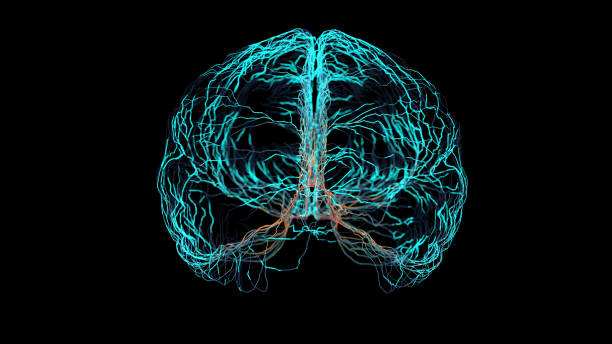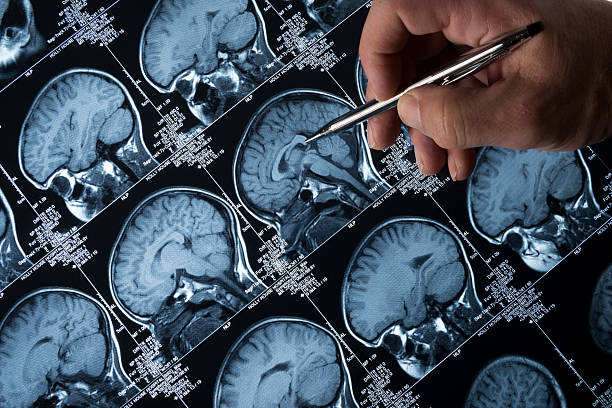Neurological disorders can have a profound impact on a person’s ability to communicate, often leading to various types of speech impairments. From aphasia resulting from a stroke to dysarthria caused by cerebral palsy, these neurological conditions can drastically alter an individual’s speech patterns and overall quality of life.
This article aims to explore various neurological disorders that lead to speech impairments, shedding light on their causes, symptoms, and potential treatment options.
Contents
The Impact of Stroke on Speech and Language Abilities
A stroke occurs when the blood supply to a part of the brain is interrupted or reduced, preventing brain tissue from getting oxygen and nutrients. This can lead to brain cells’ death in minutes. One of the key areas impacted by a stroke is the Broca and Wernicke areas, which are often responsible for speech and language. A stroke can result in aphasia, a condition that affects a person’s ability to communicate. Individuals with aphasia might have difficulties speaking, reading, writing, and understanding language.
Parkinson’s disease is another neurological disorder that can lead to speech impairments. This chronic and progressive disease affects the motor system, leading to symptoms such as tremors, rigidity, and bradykinesia. As the disease progresses, it can affect speech, resulting in a soft or low voice, a monotone voice, or slurred speech. Many people with Parkinson’s may not be aware they have these speech changes, highlighting the importance of regular speech therapy sessions for those diagnosed with the disease.
Lastly, Multiple Sclerosis (MS) is a potentially disabling disease of the brain and spinal cord. In MS, the immune system attacks the protective sheath (myelin) that covers nerve fibers, leading to communication problems between the brain and the rest of the body. One of the common symptoms of MS is dysarthria, which can make a person’s speech sound nasal or cause them to speak slowly. Like Parkinson’s, regular speech therapy can help manage the speech impairments caused by MS.
Early Detection and Comprehensive Treatment Approach

Brain nerve electric signal simulation
Early detection of speech impairments resulting from neurological disorders plays a critical role in managing these conditions. Regular check-ups, particularly for individuals with known neurological issues, can facilitate early identification of changes in speech patterns. Once a speech impairment is diagnosed, a comprehensive treatment plan can be initiated.
This usually involves a multidisciplinary approach, combining medical treatments to control the underlying neurological disorder with speech therapy to manage the speech impairment. A tailored speech therapy program can help individuals regain as much of their communication abilities as possible, improving their quality of life and giving them a sense of control over their condition.
Below are some common speech therapy techniques used to address neurological-based speech impairments:
- Articulation exercises: These focus on strengthening the muscles involved in producing speech sounds and improving overall clarity.
- Language therapy: This involves working on specific language areas affected by a condition, such as word retrieval or sentence formation.
- Voice therapy: For individuals with Parkinson’s disease, voice therapy can help strengthen the vocal cords and improve loudness.
- Augmentative and alternative communication (AAC): For individuals with severe speech impairments, AAC devices such as speech-generating devices or pictorial communication boards can aid in communication.
The Role of Technology in Managing Speech Impairments
In this digital age, technology is increasingly being utilized to aid in managing and treating speech impairments. From speech-generating devices that provide a voice for those who cannot speak to apps and software designed to improve speech clarity and fluency, technology offers innovative solutions for those dealing with speech impairments due to neurological disorders. This seamless integration of technology in speech therapy facilitates communication and boosts self-confidence and independence among individuals, further enhancing their quality of life.
Below are some examples of how technology is being used to manage speech impairments:
- Speech-generating devices: These electronic devices are programmed to produce digitized or synthesized speech based on input from the user. This can be a game-changer for individuals with severe speech impairments, giving them a voice and allowing them to communicate more effectively.
- Augmentative and alternative communication (AAC) apps: These mobile apps offer different ways for individuals with speech impairments to communicate, such as using symbols, pictures, or text-to-speech capabilities.
- Speech therapy software: Various software programs are designed specifically for speech therapy exercises and activities. These can be used alongside traditional speech therapy sessions to supplement and enhance treatment.
The Importance of Support and Understanding
Living with a neurological condition that causes speech impairments can be challenging. Not being able to communicate effectively can lead to frustration, social isolation, and even depression. Family members, friends, and caregivers need to be understanding and supportive of individuals facing these challenges. Simple actions such as giving them time to speak or using alternative methods of communication can make a significant difference in their daily lives.
Moreover, individuals with speech impairments may also face discrimination and misunderstanding from the general public due to their condition. Raising awareness and promoting acceptance of these individuals is crucial in creating a more inclusive society. Together, we can support and empower those facing speech impairments due to neurological disorders, enhancing their quality of life and helping them communicate with confidence. So, let’s work together towards a world where everyone has the opportunity to communicate freely and be understood.
Conclusion
Speech impairments resulting from neurological disorders can significantly impact an individual’s quality of life, affecting their ability to communicate and interact with others. However, with early detection, a comprehensive treatment approach, and the use of technology, these impairments can be effectively managed. It is also crucial for society to be accepting and understanding of individuals dealing with speech impairments, creating a more inclusive environment for all. By working together, we can improve the lives of those living with neurological-based speech impairments and give them a voice in our society.
If you are in need of physical, occupational, or speech therapy services, please contact us at (920) 252-4442. We look forward to hearing from you.
